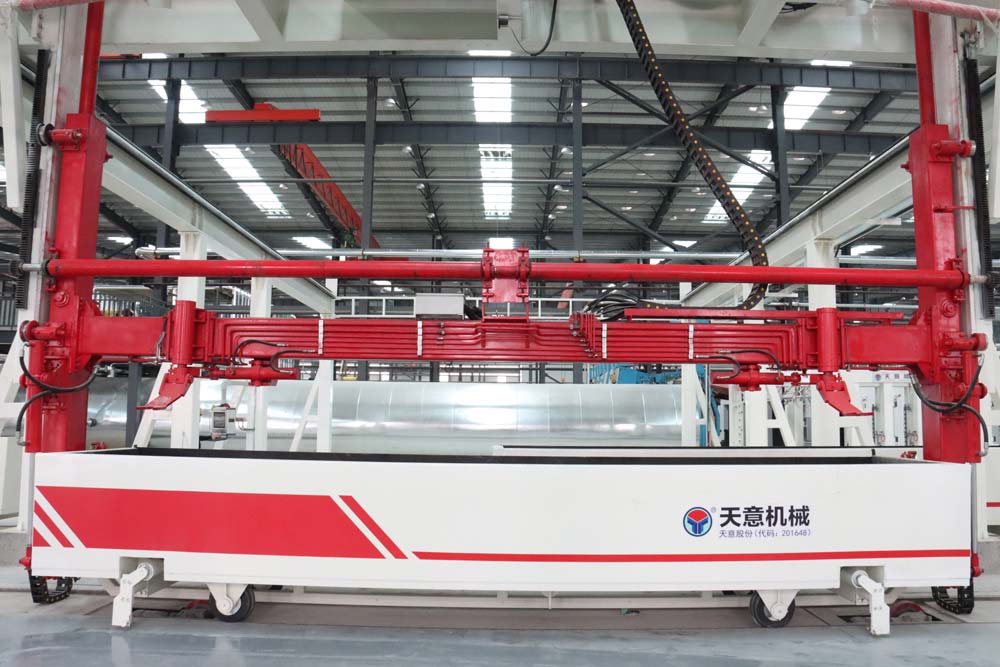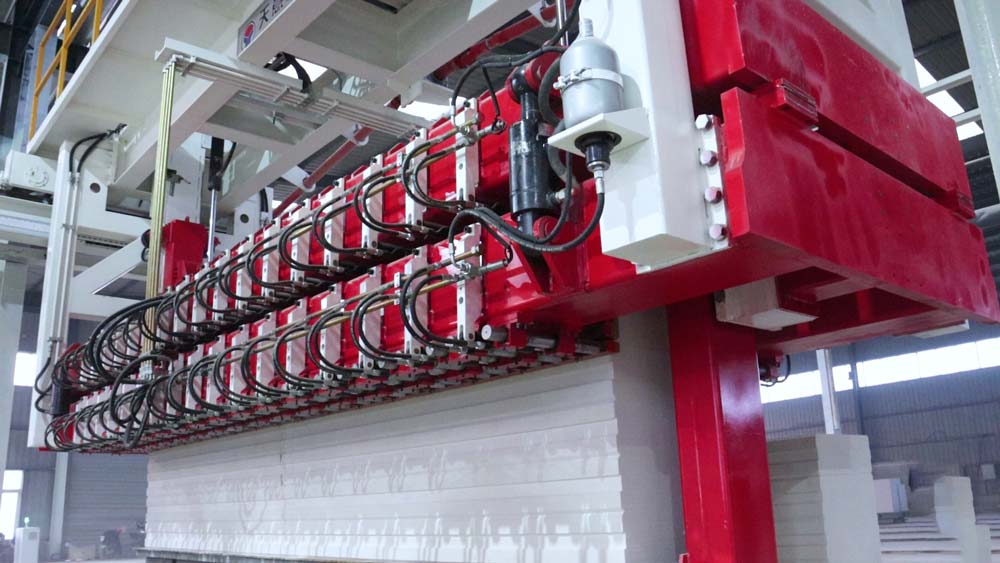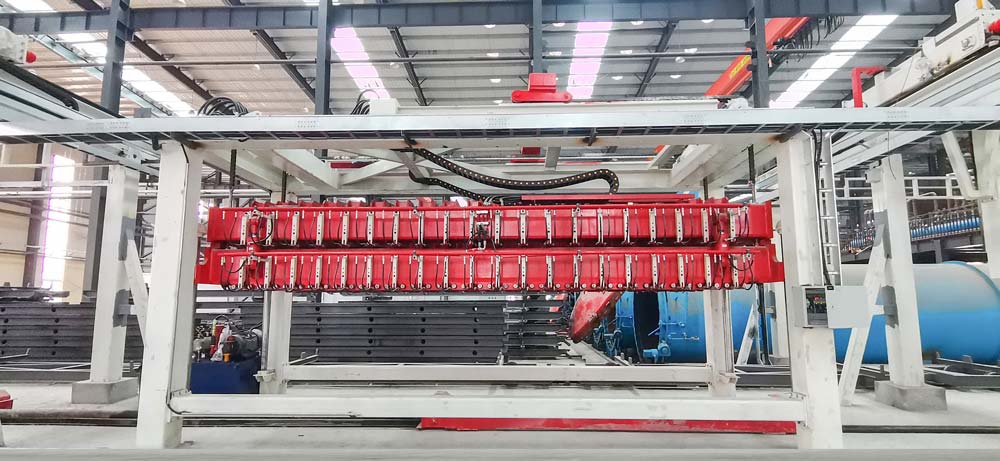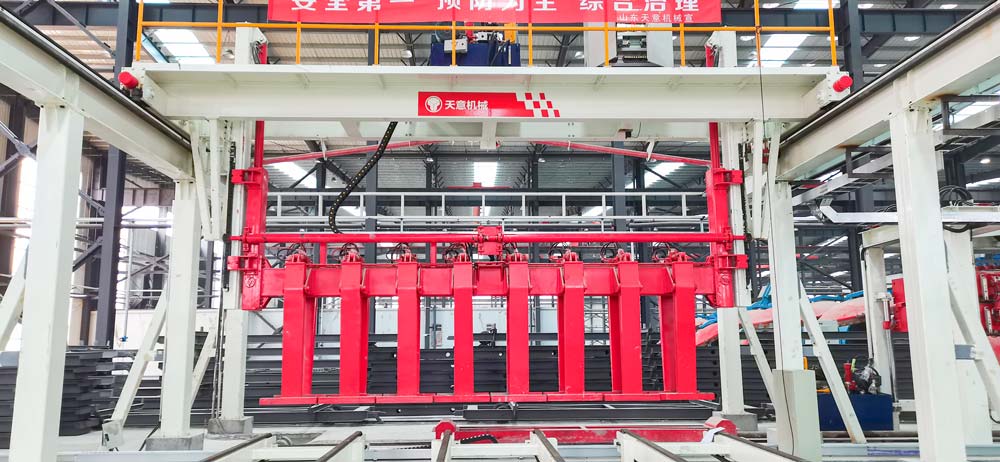ALC wallboard is made of fly ash (or silica sand), cement, lime, etc. as the main raw materials. It is embedded with double-layer two-way welded steel mesh treated with anti-rust and anti-corrosion technology, which can meet different structural design requirements. After high-pressure steam Cured porous concrete forming board.
ALC board can be used as both wall material and roof panel. It is a new type of building material with superior performance. Because the board has the advantages of light weight and high strength, wider use area, fast construction speed, short construction period, strong hanging force, direct groove and buried pipeline, easy to decorate, and has good fire prevention, sound insulation, heat insulation, moisture resistance, environmental protection, Economical, anti-seismic, anti-penetration, anti-aging and many other advantages, can be widely used in concrete structure and steel structure residential, office buildings, schools, hotels, hospitals, shopping malls, supermarkets, factories, agricultural greenhouses, commerce, industry and other commercial and civil buildings .

Shandong Tianyi Machinery's autoclaved aerated panel production line is divided into several stages according to the production sequence: raw material preparation, steel bar processing (aerated sheet), batching, pouring, static stop, cutting, autoclaved curing, and autoclaving.
1. Raw material preparation
In the production of air-entrained concrete, siliceous materials such as sand and fly ash are first ground. According to the requirements of raw materials and technological characteristics, some are dry-ground into powder, some are wet-milled with water to make pulp, and some are mixed with lime. Wait for mixing. There are two ways of mixing: one is dry mixing to prepare cement; the other is wet grinding with water, which is mainly used to improve the characteristics of fly ash or sand, which is called hydrothermal ball milling. Most of the purchased lime is in the form of lumps, so the lime must also be crushed and ground. Gypsum is generally not ground separately, or mixed with fly ash and ground together, or mixed with lime and ground together, or a ball mill can be used with a lime wheel. Other auxiliary materials and chemicals are often prepared for use. The raw material preparation process is the preparation process of the ingredients, the reprocessing of the raw materials to meet the technological requirements and the process of homogenization of the reserves before the ingredients are completed. link.

2. Rebar processing
Rebar processing is a unique process for the production of aerated concrete panels, including rust removal, straightening, cutting, welding, paint preparation, paint dipping and drying of steel bars. Reinforcing steel is the structural material for the production of aerated concrete slabs. Process control not only affects product quality, but also directly affects the structural performance and safety of buildings.
3. Reinforcement mesh assembly
The steel mesh assembly process is to put the anti-corrosion treated steel mesh into the mold according to the size and relative position required by the process, and fix it for pouring.
4. Ingredients
Batching is to measure various raw materials prepared and stored for use, adjust temperature and concentration, and measure and prepare a small amount of mixed materials on site, and then feed them to the stirring equipment in sequence according to the process requirements. Batching is a key link in the process of aerated concrete, which is related to the ratio of the active ingredients between the raw materials, and whether the fluidity and viscosity of the slurry are suitable for the gasification of aluminum powder and the normal hardening of the green body. In short, it has the most direct impact on gas expansion, hardening process and product performance.

5. Pouring
The pouring process is one of the unique production processes that distinguish air-entrained concrete from other types of concrete. The pouring process is to mix the materials put into the mixer after the previous batching process is measured and adjusted to make a slurry that meets the requirements of time, temperature and consistency specified by the process. Pour into the mold. At this time, if the plate is produced, the assembled steel mesh has been placed in the mold. The slurry undergoes a series of physical and chemical reactions in the mold to generate air bubbles, which expand, thicken and harden the slurry. The pouring process is an important process to form a good pore structure, and together with the batching process, it constitutes the core link of the aerated concrete production process.
6. Stop
The static stop process is mainly to promote the slurry after pouring to continue the process of thickening and hardening. In fact, this process starts after the slurry is poured into the mold, including two processes of gas expansion and green body maintenance, so that the material can be cured. The slurry is gassed to form a green body, and the green body reaches a certain strength for cutting. There is not much operation in this process, and vibration should be avoided. At the same time, strict attention should be paid to the change of the slurry during the gas generation process and feedback to the batching and pouring process, because the main defects of the green body are generated in this process, such as collapse mold, blank Body cracking, suffocation, etc.
7. Cutting
The cutting process is to divide and shape the aerated concrete body to make it meet the requirements of the appearance size. The cutting process embodies the characteristics of aerated concrete, which is easy to carry out large-scale molding, flexible and diverse in shape and size, and can be large-scale mechanized production. It is also a prominent advantage of aerated concrete that is different from other concretes. The cutting work can be carried out mechanically or manually. In order to improve production efficiency and product quality, special cutting machines have been designed, which constitute the core of the aerated concrete production process and form different patented technologies. The cutting process directly determines the appearance quality and certain intrinsic qualities of the aerated concrete product.

8. Autoclave curing
The autoclave curing process is to perform high pressure steam curing on the aerated concrete body. For air-entrained concrete, only after a certain temperature and sufficient time of curing, the green body can complete the necessary physical and chemical changes, thereby generating strength and meeting the needs of building construction. This process is usually carried out at above 174.5 °C. Therefore, a well-sealed autoclave is commonly used, and saturated steam with a certain pressure is used for heating, so that the green body can fully complete its hydration reaction under high temperature and high humidity conditions. The required hydration products make the aerated concrete have certain strength and other physical and mechanical properties. The autoclave curing process determines the final formation of the intrinsic properties of the aerated concrete.
9. Out of the kettle
The kettle is the last process in the production of aerated concrete. Including product discharge, hoisting, inspection, packaging, cleaning and oiling of trolleys and bottom plates, to ensure the supply of qualified products to the market and the normal progress of the next production cycle process. With the market requirements for product appearance and urban management requirements, more and more aerated concrete plants have begun to package aerated concrete products, and the corresponding packaging has also changed from simple packaging to adding packaging machinery, using thermoplastic packaging.


 魯公網(wǎng)安備 37088202000031號
魯公網(wǎng)安備 37088202000031號